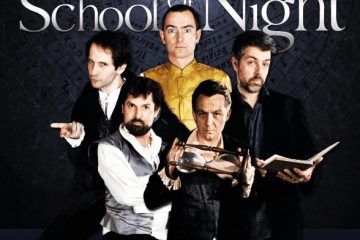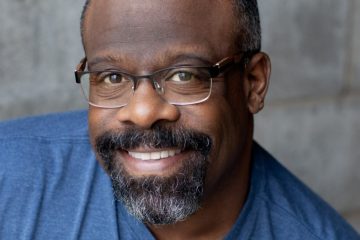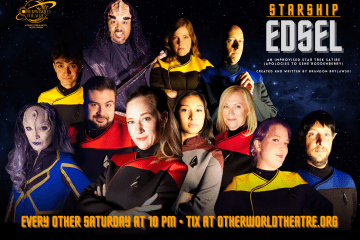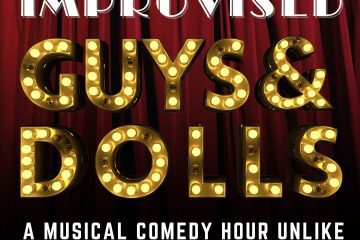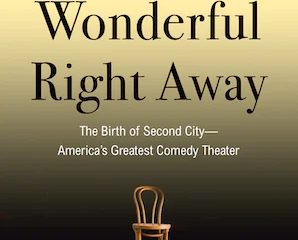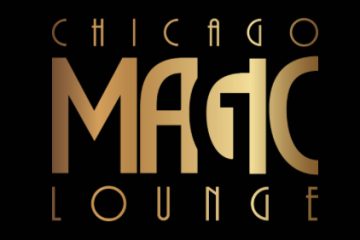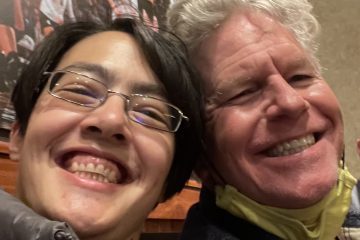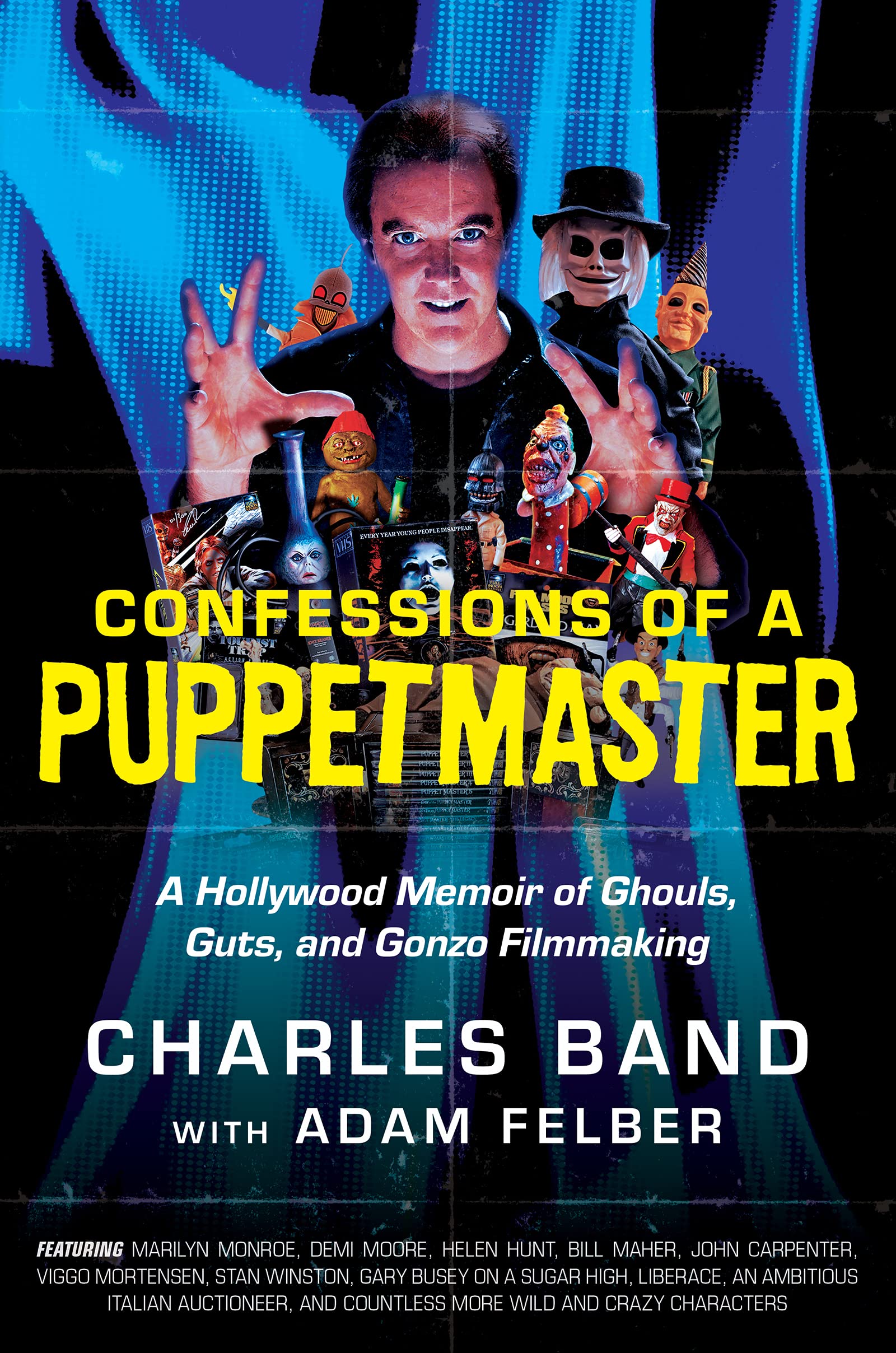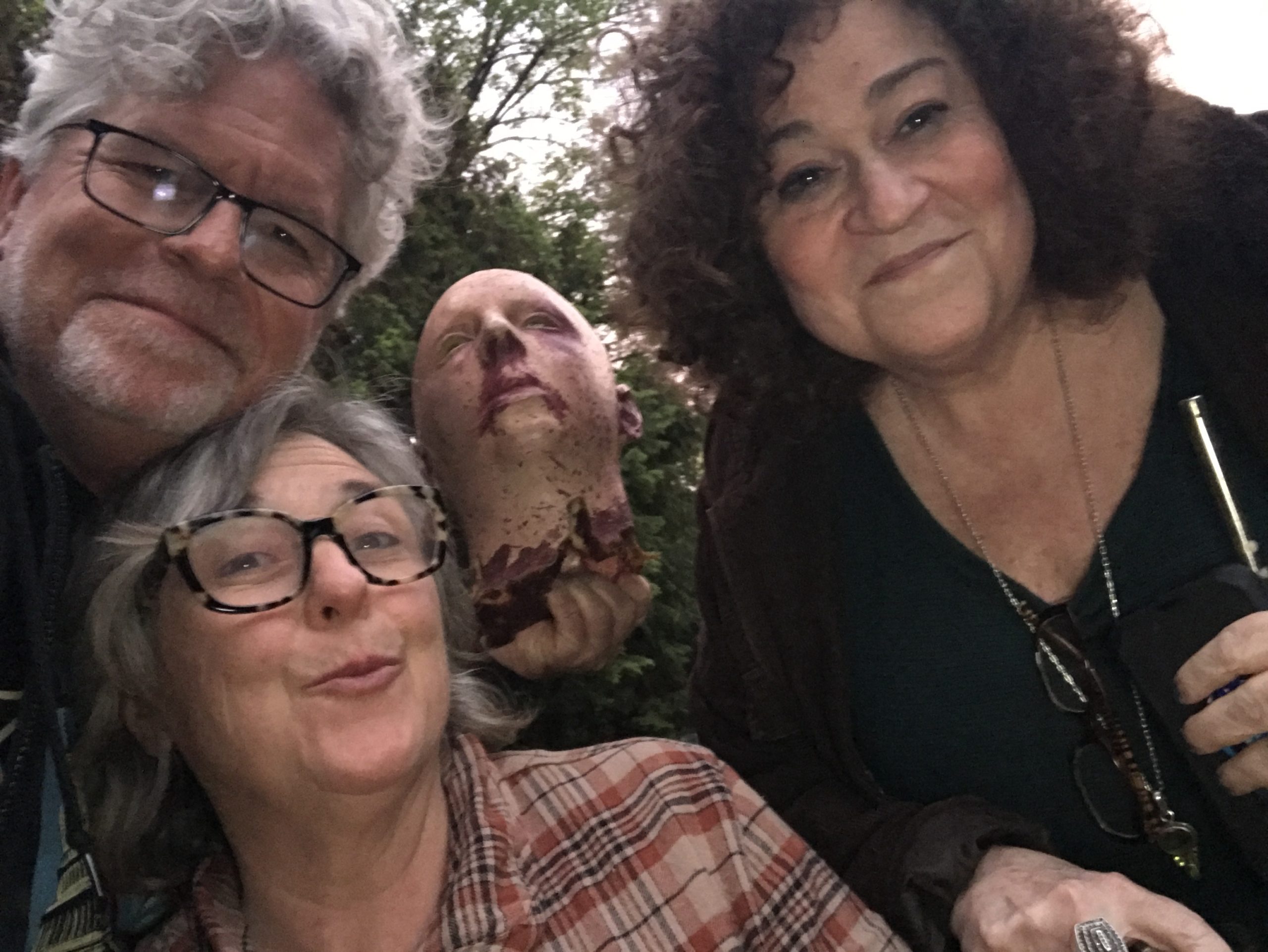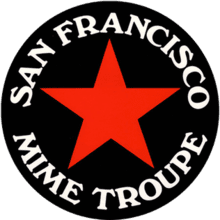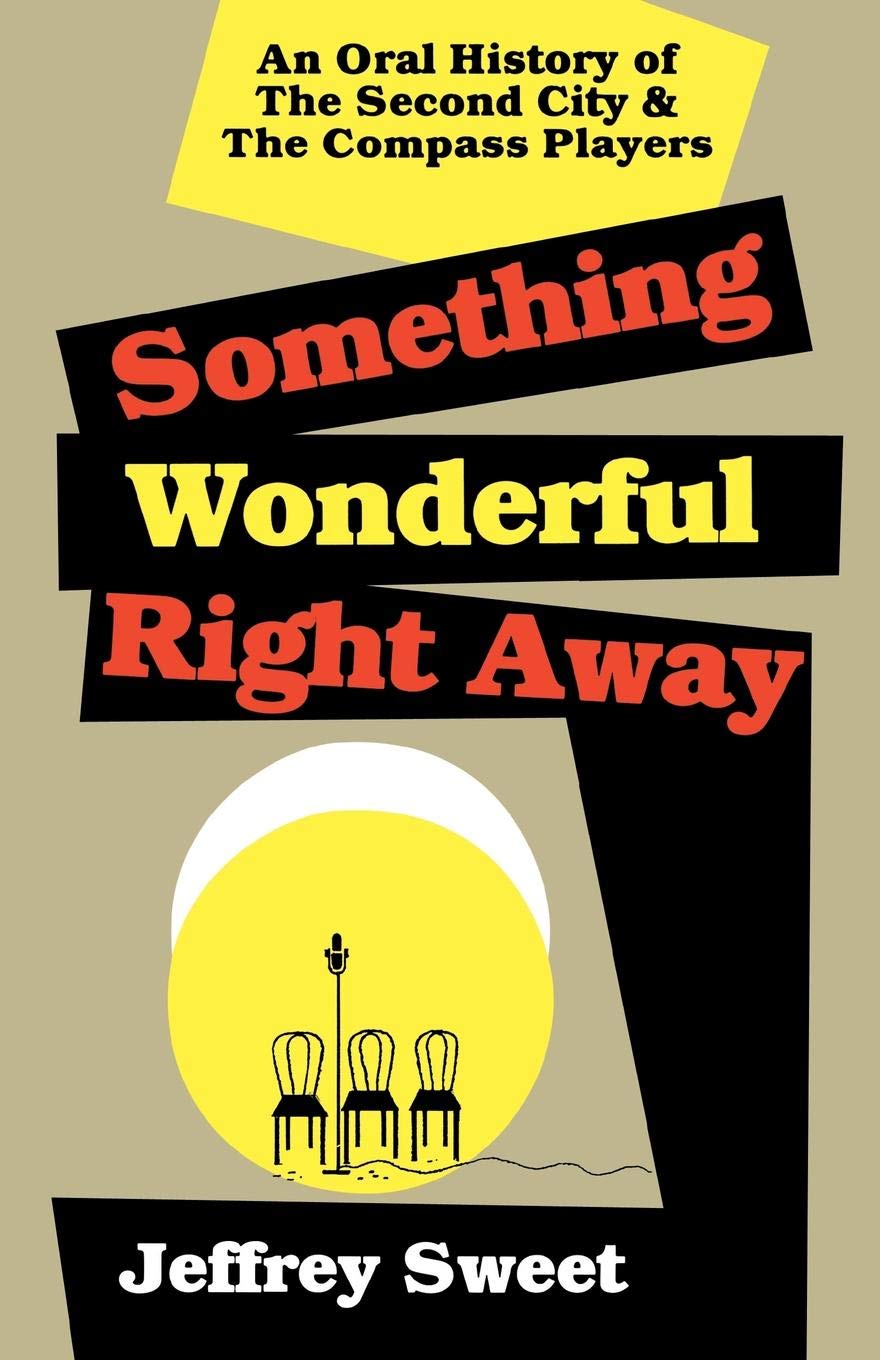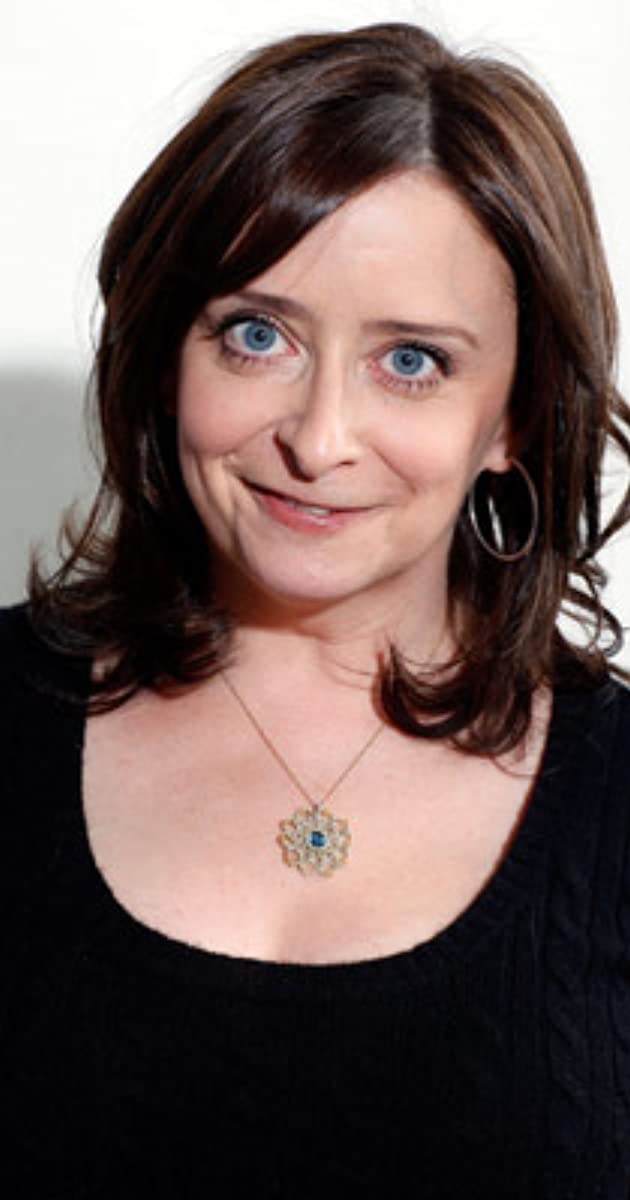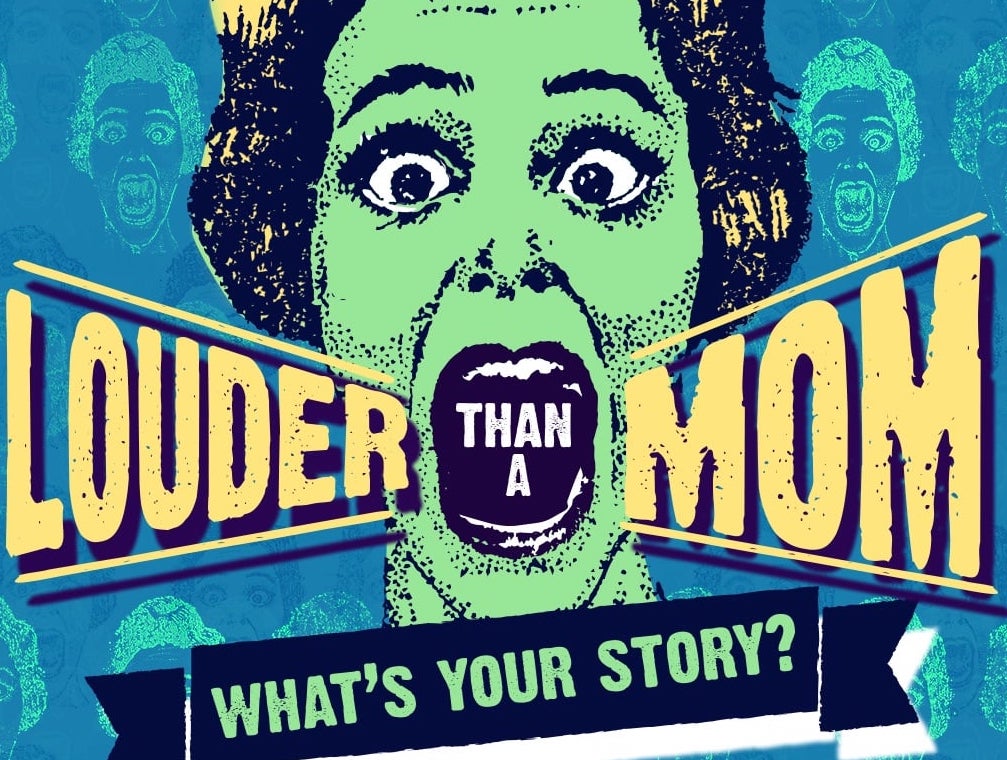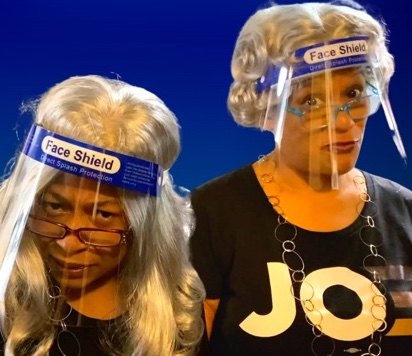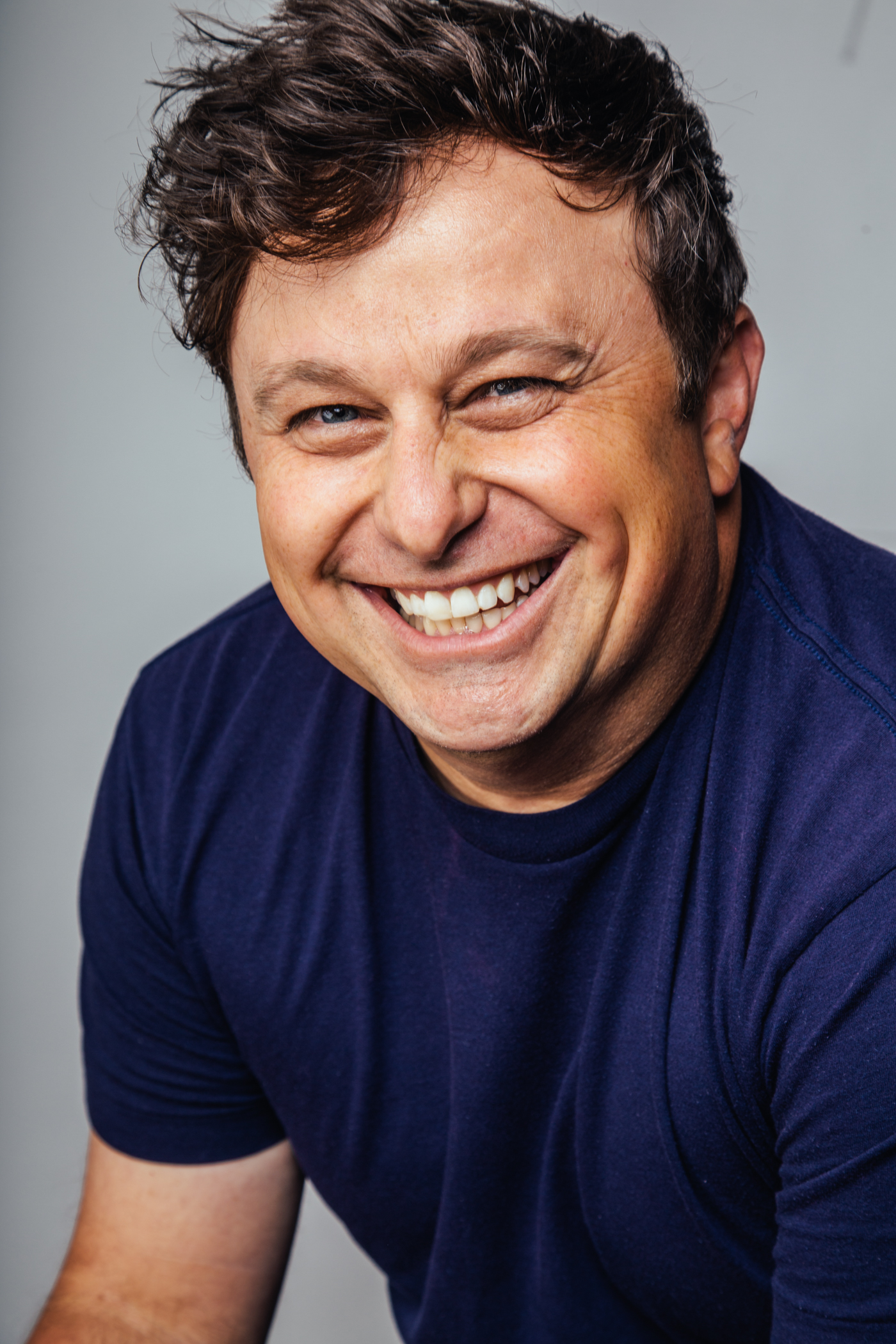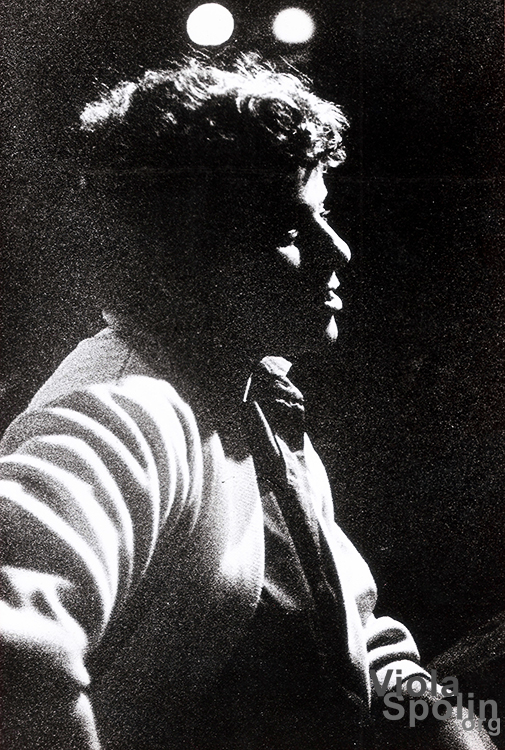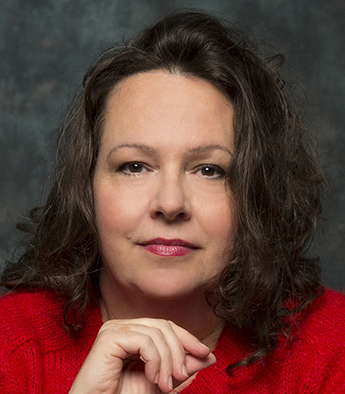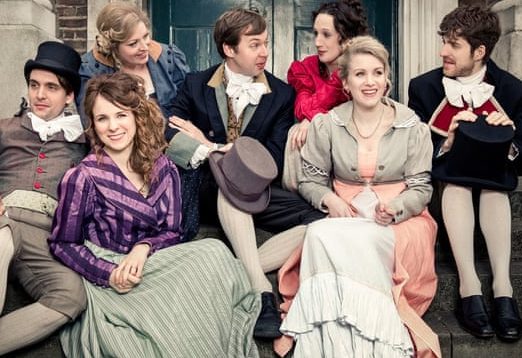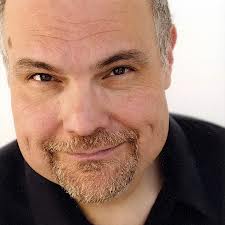School Of Night
Oliver Senton, one of the co-founders of The School of Night, discusses the origins of the great British Shakespearean improv company (loosely inspired by the mysterious Elizabethan cabal of the same name) and its connection to the late, great actor, writer, and director Ken Campbell (pictured below with Senton). As also one of the co-founders of Showstopper! The Improvised Musical, Senton discusses the comparative difficulties of improvising songs vs. improvising in iambic pentameter and reveals Campbell’s shared connection with the Reduced Shakespeare Company. Senton also explores the secrets of how improvising Shakespeare informs one’s understanding of his plays; the surprising wonder of being big in Newfoundland; how being famous gets in the way of one’s writing; the distinction between Shakespearean characters and Marlovian grandstanding; and the ultimate challenge of improvising a complete, compelling narrative. (Length 20:57) (Pictured above, l-r: Michael Joseph Chance, Dylan Emery, Sean McCann, Alan Cox and Oliver Senton)
Podcast: Download (24.1MB)
